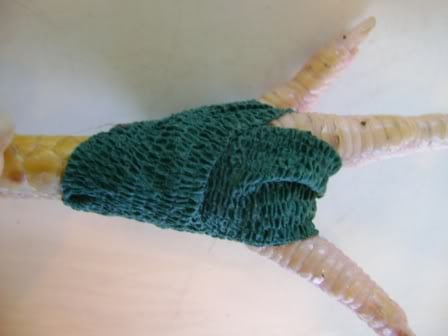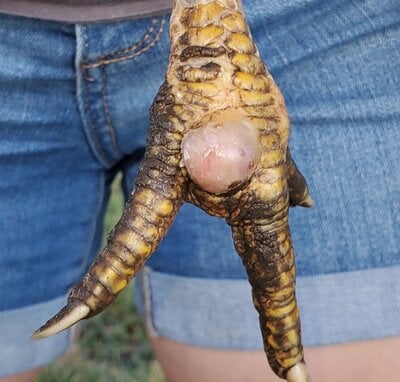Ewehnes
Songster
- May 6, 2020
- 106
- 128
- 136
Attached is a photo of the access type area on top of my chickens foot on Sunday. We got the black plug out of the pad of her foot and that seems to be healing nicely. Do I need to do anything with the top pus pocket as well?Unfortunately, I have had to do my share of bumblefoot surgeries. I'm often replying on others' threads that seek help and advice so yesterday while performing yet another "procedure" I thought I would document and post pics and step-by-step info:
Here's what the foot looked like from the top - notice the swelling:
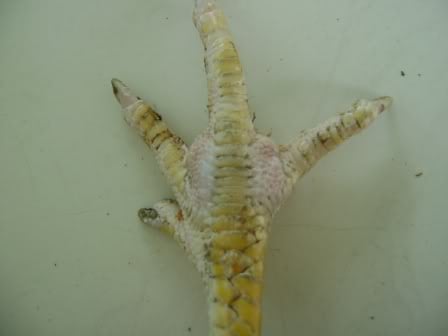
From the bottom:
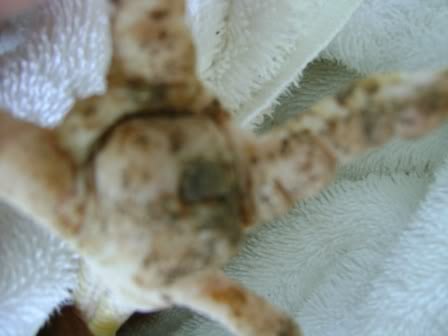
After cleaning the foot - notice the trademark, ever present, black scab:
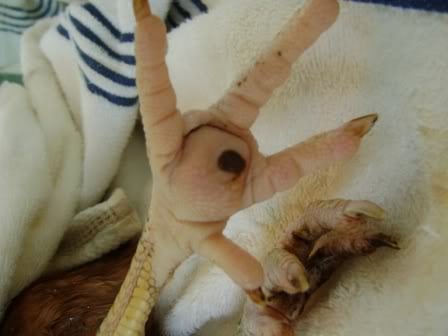
To operate on the foot, lay the hen on its side with its head and body covered and they don't normally fuss or move around:
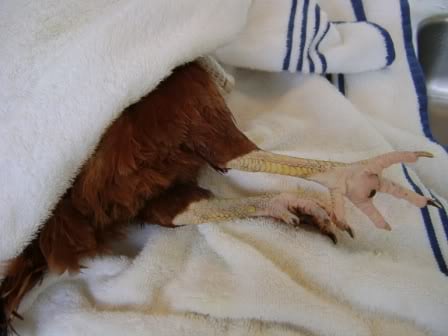
I begin by preparing a sink full of very warm, almost hot, very salty water. Epsom salts or plain old kitchen salt will work. I soak the foot for a few moments. I have a sink where I can keep her on her side and still put her foot in the water. If you don't have that, then just pick her up and hold her with her foot in the water. Soak for about five minutes while rubbing the pad.
Then, using a sharp single-edge razor blade (or scalpel), cut away the black scab and pull it out. While cutting the scab off, cut down at a slight angle into the pad and go all the way around the outside edge of the black scab. There may be a plug of gunk attached to it. Pull the scab and any attached gunk out. Once the scab is removed, proceed with soaking again.
Here's a pic while pulling back the scab - notice stuff attached to it:
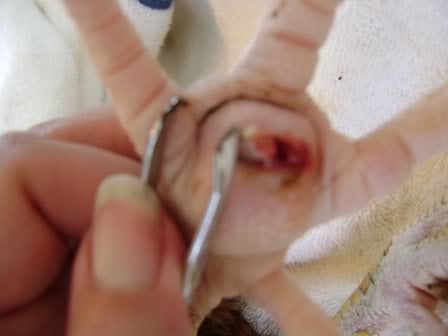
Here's the hole left behind - notice stuff down in the hole:
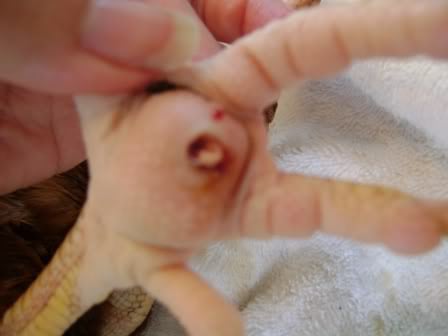
Soak some more.
Pulling out a plug:
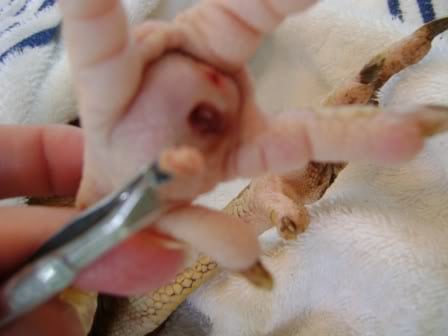
Keep soaking in the salt water and mashing/squeezing the foot while soaking.
More "gunk" squeezes out of the hole. But please note, it is not liquid, it is a cheesy, rubbery substance and most of it will need to be dug out. Tweezers and sharp manicure scissors work well.
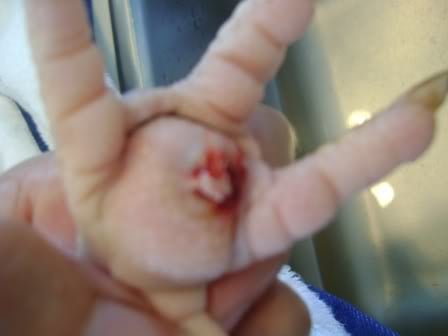
I often work on a foot for close to an hour. Soaking for a few minutes, while squeezing, then digging around some more, then repeat. Don't worry about any bleeding - they won't bleed to death. I have them near the edge of the sink so I can keep their foot under running warm water so that I can see what I'm doing.
When finished, you'll have a clean, deep hole. Pack the hole with Neosporin - you can also mix a little Terramycin with the Neosporin.
Then, cut thin strips of vetwrap and wrap the foot going over the pad and between the toes. Unfortunately, company arrived and I didn't get to finish taking pics of the foot wrapped. But when I finish wrapping, I go around the ankle/leg. Don't wrap too tightly.
I leave the wrap on for a few days, then take it off and check. Normally, they are healed but if not, I wrap once more for another few days.
I've never given antibiotics and I've never had a reoccurence in the same bird.
Hope this helps.
********************************************
8/30/09 Edited to add: I cleaned her foot today and changed the bandage so I took the opportunity to take pics of how I wrap the foot.
First - I cut a piece of vetwrap into three or four thin strips. Then I wrap across the pad and between the toes and wrap around the ankle with one piece and then do the same with another piece but go between the other toes. This way, she can have full use of her foot for scratching and roosting but no dirt can get in or under the bandage. Again, be careful and not wrap too tightly. I don't really stretch it at all, just wrap.
Cut strips:
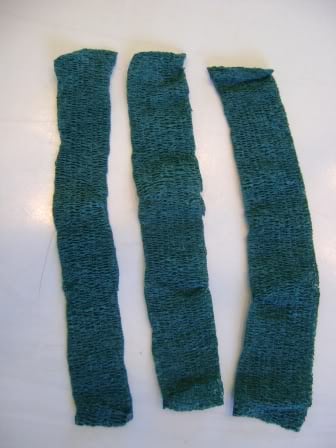
From Bottom:
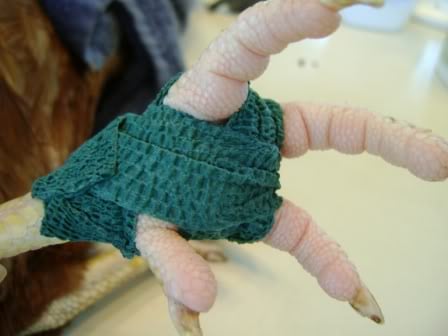
From Top:
